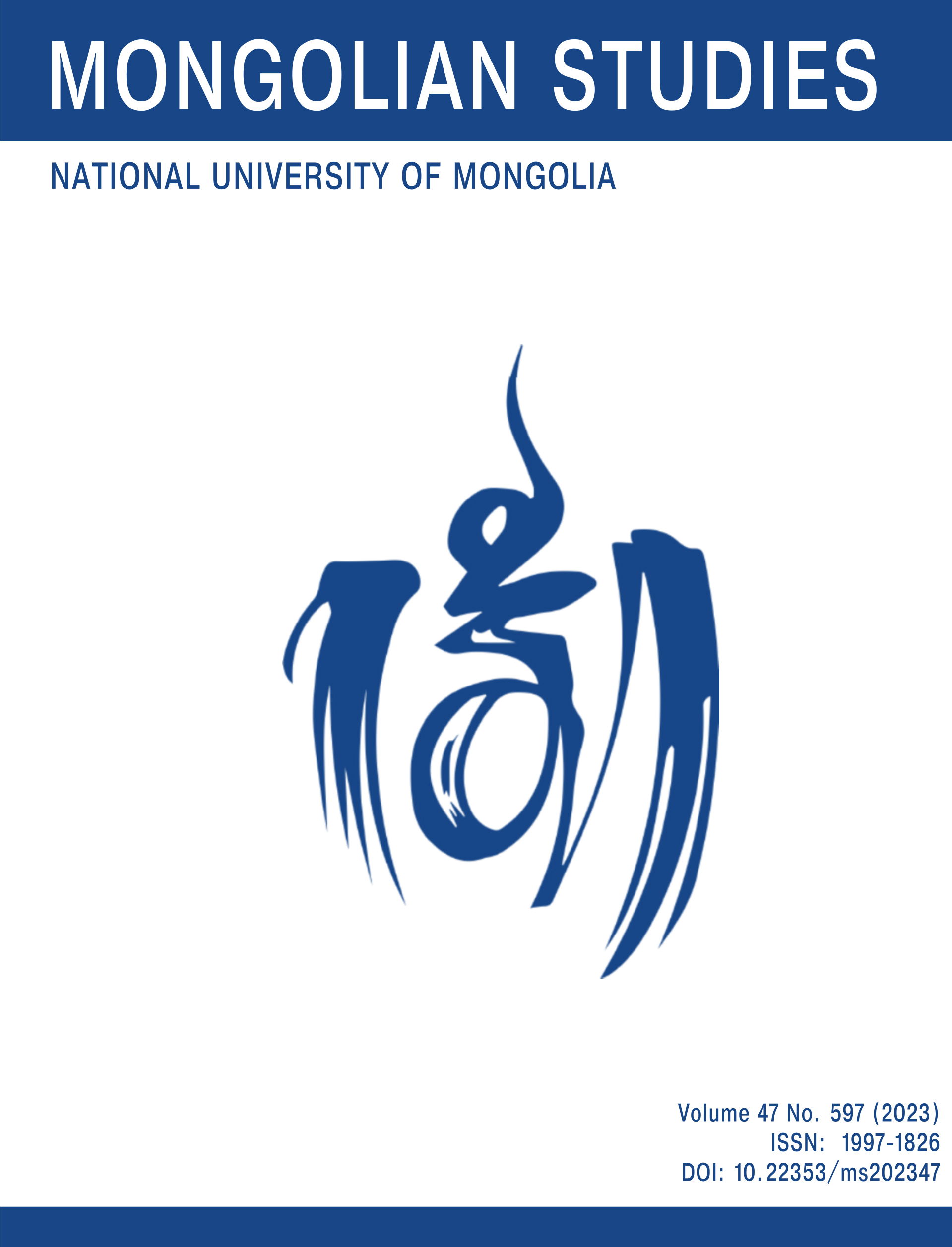Миньхэ монгор хэлний *ki- үйл үгийн түүхэн хувьслын тухай орчин цагийн монгол хэлний байдалтай харьцуулан үзэх нь
The Historical Change of the Verb *ki- in the Minhe Monguor Language compared with Mod-ern Mongolian
Keywords:
Миньхэ монгор хэл, *ki- хэлбэртэй үйл үг, авианы хувьсал, бие даасан үг, үг бүтээх дагавар, орчин цагийн монгол хэл (Minhe Monguor language, the verb *ki-, phonological change, independent word, derivational suffixes, Modern Mongolian)Abstract
DOI: 10.22353/ms20234720
https://doi.org/10.22353/ms20234720
This paper considers the development of the verb *ki- (to do) in the Minhe Monguor language from a diachronic perspective, compared with Modern Mongolian.
As a result of the research, *ki- (to do) became ge- [gǝ-] as a simple word and -ke- [-kǝ-] as the denominal verbal suffix in forming verbs from words of Chinese origin. Moreover there is another alternation of the suffixes -ke- [-kǝ-] ~ -qi- [-ʨi-] which men tend to use more often. In other words these three morphemes have the same origin *ki- and the phonological changes can be explained as occurring in the order 1.*ki- > -ke- [-kǝ-] (voiceless), 2.*ki- > -qi- [-ʨi-] (palatalized), and 3.*ki- > ge- [ɡǝ-] (voiced) etc.
Finally, the similarities and differences between two languages were mentioned in the conclusion.





